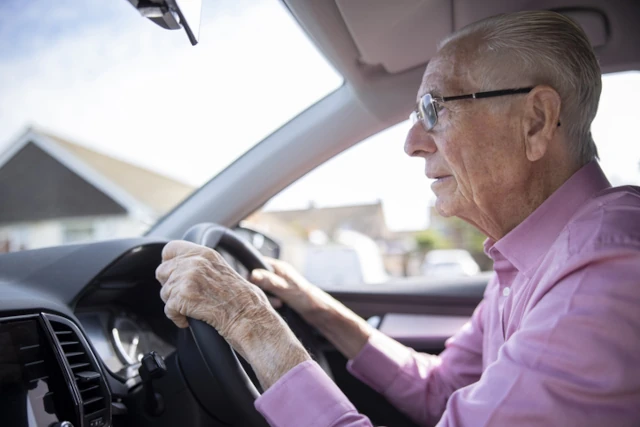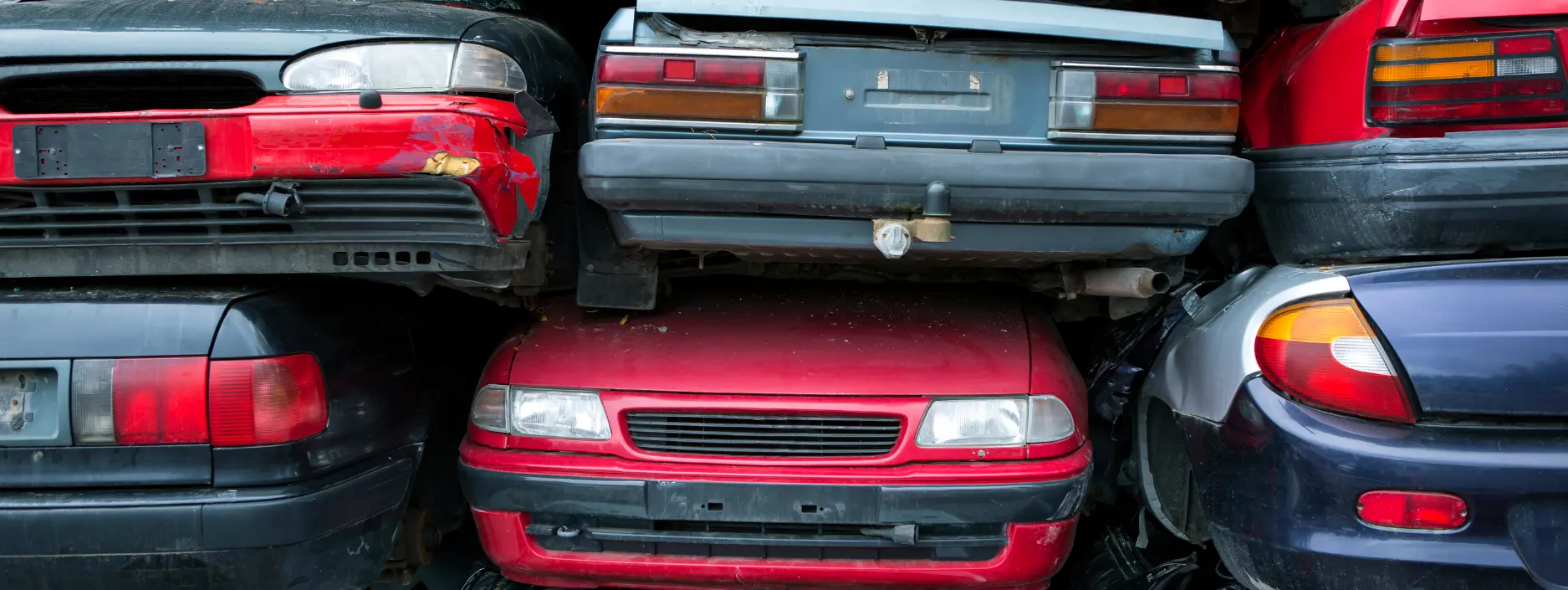There are two universal truths about driving: everyone thinks they’re good at it, and everyone thinks everyone else is terrible at it. But what if who you are, or more specifically, how old you are, actually shapes how other drivers see you? Because when it comes to trust on the road, age might just be the ultimate divider.
Whether you’re a fresh-faced 17-year-old nervously tackling your first parallel park or a seasoned driver who’s been on the roads since before seatbelts were compulsory, everyone has opinions about which age group should (and shouldn’t) be behind the wheel. Are younger drivers really as reckless as their reputation suggests? Do older motorists deserve their “slow and steady” stereotype? And where does everyone else fit in between?
To find out, Scrap Car Comparison asked drivers in 18 countries around the world to share how they really feel about different generations on the road, from who they’d trust most in the driver’s seat, to when they think people should hang up their keys for good. The results? Let’s just say the world has opinions, and it’s not afraid to use its indicators.
Key Findings
- Young Gen Z drivers (under 25) are seen as the biggest risk-takers on the road, with 90% of Australians and 88% of Brits agreeing they’re most likely to take risks
- Older Millennials (those aged 35–44) take the crown as the world’s most trusted drivers, with those in Spain (58%), Germany (57%), and Hungary (57%) leading the way in putting their faith in this “Goldilocks generation”, not too fast, not too slow, just right.
- Older drivers face a global confidence crisis, as nearly half of all respondents believe drivers should stop in their 70s, while almost 3 in 10 (29%) South Africans think people should consider stopping driving in their 60s
- When it comes to patience, those in Ireland (69%) and the UK (68%) believe that drivers over 75 are the slowest on the road
- Only 18% of people globally would feel comfortable being a passenger in a car with someone over 80-years-old behind the wheel, with Greece (94%) and Hungary (93%) leading the “thanks, but we’ll walk” response
- Despite all the generational finger-pointing, experience trumps age overall, with 70% of respondents saying that time on the road matters more than the number on your licence.
Younger Gen Z Drivers: Confident, Quick… and Completely Untrusted
Globally, when asked which drivers are the most likely to take risks, Young Gen Z-ers (those under 25) can’t catch a break. A staggering 77% of global respondents said young people are the most likely to take risks while driving, painting them as the universal villains of the motorway.
Looking at specific markets more closely, Australians seem the most sceptical towards Gen Z drivers with as many as 90% of the population saying this age group takes the most risks. The UK follows closely, with 88% of people feeling dubious about young Gen Z drivers, with the US, Canada, and New Zealand all hovering above the 80% mark too. The English-speaking world, it seems, has collectively decided that those under 25 can’t be trusted behind the wheel.
A few nations are a bit kinder. South Africans are the least harsh, with only 67% calling young drivers reckless, while only 68% of the French felt the same, and 70% of people in Hungary.
Scrap Car Comparison previously looked into which countries people are the most terrified to drive in, and found that South Africa is one of the least terrifying locations for foreign drivers, so perhaps their kind approach to younger drivers contributes to that.

Where Younger Gen Z Drivers Are Seen as the Riskiest on the Road
| Rank | Country | % who believe under-25s take the most risks |
| 1 | Australia | 90% |
| 2 | UK | 88% |
| 3 | US | 84% |
| 4 | New Zealand | 84% |
| 5 | Netherlands | 84% |
| 6 | Ireland | 82% |
| 7 | Canada | 82% |
| 8 | Spain | 78% |
| 9 | Chile | 78% |
| 10 | Germany | 76% |
| 11 | Poland | 75% |
| 12 | Italy | 75% |
| 13 | Portugal | 73% |
| 14 | Mexico | 71% |
| 15 | Greece | 71% |
| 16 | Hungary | 70% |
| 17 | France | 68% |
| 18 | South Africa | 67% |
Older Millennial Drivers: The World’s Gold Standard
If you’re aged between 35 and 44, take a bow, as you are officially the world’s favourite kind of driver. Over half of people globally (54%) say they think this age group has the best driving skills, and in countries like Spain, Germany, and Hungary, that figure climbs above 55%.
Why? You’re experienced enough to stay calm in traffic but still alert enough to spot a speed camera in time. You’ve mastered both the rush-hour chaos and the Sunday drive, striking that perfect balance between confidence and caution. You’re not as impulsive as the newbies, nor as hesitant as those still fumbling for their glasses to read the sat-nav. You are, quite literally, the Goldilocks of global motoring, you’re just right.
In Spain, with its mix of mountain passes, motorways, and tight city streets, composure counts. Germany’s autobahns reward focus and precision, while Hungary’s blend of urban congestion and open highways favours drivers with steady hands and quick minds.
It’s a pattern echoed across Poland, the Netherlands, and Mexico too, where road variety keeps even the best drivers on their toes. So, enjoy it while it lasts, because once you hit your sixties, the world’s patience starts to thin.
Where Drivers Feel Safest with Older Millennials Behind the Wheel
| Rank | Country | % who feel safest with a 35–44 driver on a long journey |
| 1 | Spain | 58% |
| 2 | Hungary | 57% |
| 3 | Germany | 57% |
| 4 | Poland | 56% |
| 5 | Netherlands | 56% |
| 6 | Mexico | 56% |
| 7 | Greece | 55% |
| 8 | Canada | 52% |
| 9 | New Zealand | 50% |
| 10 | France | 49% |
| 11 | Australia | 49% |
| 12 | US | 48% |
| 13 | Italy | 48% |
| 14 | Chile | 48% |
| 15 | UK | 46% |
| 16 | Ireland | 46% |
| 17 | Portugal | 43% |
| 18 | South Africa | 41% |
The “Stop Driving” Debate: When should we be retiring from driving
Ask 10 people when someone should stop driving, and you’ll get 10 different answers, but most will start with “70 or 80.” Globally, almost half (48%) of people say drivers should hang up their keys in their 70s, while 46% say 80s, and in some countries, the perceived cut-off is even harsher.
In Hungary and Greece, for instance, hitting 70 is seen a one-way trip to the passenger seat, where 63% and 59% of the population respectively believe it’s time for drivers to retire their wheels once their 60s have passed.

Where People Believe Drivers Should Stop in Their 70s
| Rank | Country | % who believe people should stop driving in their 70s |
| 1 | Hungary | 63% |
| 2 | Greece | 59% |
| 3 | Chile | 58% |
| 4 | Portugal | 57% |
| 5 | Netherlands | 57% |
South Africa is even less forgiving, with nearly a third (29%) saying people should stop driving in their 60s. That’s right, if you’re sixty-five and fancy a road trip through Johannesburg, you might be getting funny looks on the national routes.
Where People Believe Drivers Should Stop in Their 60s
| Rank | Country | Stop driving in 60s |
| 1 | South Africa | 29% |
| 2 | Mexico | 14% |
| 3 | Chile | 10% |
| 4 | Greece | 9% |
| 5 | US | 8% |
At the other end of the scale, Italy and New Zealand take a more “drive till you drop” approach, with 65% and 62% respectively saying people should only stop driving once they’re into their 80s.
Where People Believe Drivers Should Stop in Their 80s
| Rank | Country | Stop driving in 80s |
| 1 | Italy | 65% |
| 2 | New Zealand | 62% |
| 3 | Australia | 59% |
| 4 | France | 57% |
| 5 | US | 56% |
Who’s Holding Up Traffic?
If young drivers are too fast, older ones are too slow, or at least that’s the verdict from more than half the planet. According to our study, 54% of people worldwide said drivers aged 75 and older are the most likely to crawl along cautiously.
The frustration runs highest in Ireland (69%), the UK (68%), and Australia (65%), where narrow lanes, single-track country roads, confusing roundabouts and sprawling suburban roads can make a slow driver feel like a rolling roadblock. In New Zealand and the Netherlands, where winding coastal drives and busy cycle-friendly roads demand constant attention, it’s a similar story.
Further down the list, France, the US, and Italy report moderate irritation, perhaps thanks to their mix of high-speed highways and slower urban zones that keep drivers used to shifting gears between fast and slow.
Meanwhile, in South Africa, Mexico, and Chile, fewer people seem to mind; with wider roads and a more relaxed driving culture, there’s a bit more room, and tolerance, for those taking their time.
Where Drivers Think the Over-75s Take It Slow
| Rank | Country | % who think those aged 75+ are most likely to drive too slowly or cautiously |
| 1 | Ireland | 69% |
| 2 | UK | 68% |
| 3 | New Zealand | 67% |
| 4 | Netherlands | 67% |
| 5 | Canada | 65% |
| 6 | Australia | 65% |
| 7 | France | 61% |
| 8 | US | 59% |
| 9 | Italy | 58% |
| 10 | Hungary | 53% |
| 11 | Germany | 52% |
| 12 | Portugal | 51% |
| 13 | Spain | 50% |
| 14 | Poland | 49% |
| 15 | Greece | 43% |
| 16 | Chile | 33% |
| 17 | Mexico | 32% |
| 18 | South Africa | 23% |
It’s a global gripe: for every teenager seen as reckless, there’s also a pensioner being accused of driving too slow.
Still Cruising at 80, But Nobody Wants a Lift
Globally, just 18% of people say they’d feel comfortable riding with someone over 80, meaning most would sooner walk, cycle, or hop on public transport than take a seat in the passenger side.
Greece, Poland, and Hungary top the list for uneasy people, with more than nine in ten respondents saying they wouldn’t feel comfortable being driven by someone in their eighties. In places where tight city streets and twisting rural roads keep drivers constantly alert, it seems trust in quick reflexes outweighs faith in experience.
South Africa and Portugal follow, where challenging road networks, from busy highways to steep, scenic routes, may explain why locals prefer drivers with sharper reaction times.
Where Passengers Feel Most Uncomfortable of 80+ Drivers
| Rank | Country | % who say they would not feel comfortable being a passenger with a driver aged over 80 |
| 1 | Greece | 94% |
| 2 | Poland | 93% |
| 3 | Hungary | 93% |
| 4 | South Africa | 88% |
| 5 | Portugal | 87% |
| 6 | France | 85% |
| 7 | Spain | 84% |
| 8 | Mexico | 84% |
| 9 | Germany | 84% |
| 10 | Chile | 84% |
| 11 | Italy | 83% |
| 12 | US | 81% |
| 13 | UK | 77% |
| 14 | Canada | 77% |
| 15 | Netherlands | 75% |
| 16 | Australia | 71% |
| 17 | New Zealand | 70% |
| 18 | Ireland | 61% |
Practice Makes Perfect
Despite all the debate about age, most people agree on one thing: experience behind the wheel counts far more than age itself. Across all countries, 70% said it’s experience, not age, that makes a good driver. Reaction time and confidence trailed behind, while just 2% said age alone matters most.
Leading the way is Hungary, where more than three quarters (77%) of respondents put experience first, perhaps no surprise in a country where busy urban routes and long, open highways demand both patience and skill. Spain follows closely at 76% valuing experience above all, where navigating narrow city streets and winding mountain roads calls for well-honed instincts.
South Africa, the Netherlands, and Ireland also appreciate experience above age – all countries known for diverse driving conditions, from wide rural roads and unpredictable traffic to dense city centres and scenic coastal routes. It’s clear that wherever roads present a challenge, experience earns respect.
Where Experience Matters Most Behind the Wheel
| Rank | Country | % saying most important driving trait is experience |
| 1 | Hungary | 77% |
| 2 | Spain | 76% |
| 3 | South Africa | 74% |
| 4 | Netherlands | 74% |
| 5 | Ireland | 74% |
| 6 | Poland | 73% |
| 7 | Australia | 73% |
| 8 | Mexico | 71% |
| 9 | Greece | 71% |
| 10 | Chile | 70% |
| 11 | Portugal | 69% |
| 12 | Germany | 69% |
| 13 | Canada | 69% |
| 14 | US | 67% |
| 15 | New Zealand | 67% |
| 16 | France | 64% |
| 17 | Italy | 63% |
| 18 | UK | 60% |
So yes, the young are fast learners (and maybe just fast), the middle-aged are calm and competent, and the elderly are cautious, but it’s the miles, not the birthdays, that count. Because whether you’re a nervous new driver clutching your L-plates (or your B plates) or someone who could navigate their hometown with their eyes closed, what really matters is experience, awareness, and respect for the road.
Our global findings show that age shapes how we drive, and how we judge others’ driving, but it doesn’t define our ability. Every generation brings something different to the wheel: the confidence of youth, the steadiness of experience, and the patience that only time (and traffic jams) can teach.
In the end, driving isn’t about proving who’s fastest or safest, it’s about sharing the road.
Methodology:
Scrap Car Comparison surveyed 200 adult drivers across 18 countries in 2025, asking about perceptions of driving ability, safety, risk-taking, and when people should consider stopping driving. Figures represent national averages, and data is correct as of November 2025.

Scrap a Car in Your Area
Scrapping an old car doesn’t have to be stressful. Scrap Car Comparison can get you a great price and quick, free collection. Get an instant quote now or browse our scrap locations.
 Everything Cars and Motoring
Everything Cars and Motoring
If you enjoyed that, here’s more of our exciting studies, guides, industry analysis and general interest pieces on everything related to motoring and car ownership.

Where is the Cheapest Country to Own a Car?
Owning a car is an expense, but where in the world is it most (or least) affordable? We found investigated and found out here!
President Joe Biden’s Impressive Car Collection
We wanted to take a look into Biden’s collection of cars, plus find out why the official state car is the safest car in the world.
Abandoned Motor Racing Venues
We’re used to seeing cars come and go, making their final journey to the scrap pile. But what about when those cars are classic race cars?.
The UK’s Most Confusing Junction
A loving look at some of the craziest and weirdest round-a-bouts in the British Isles.

